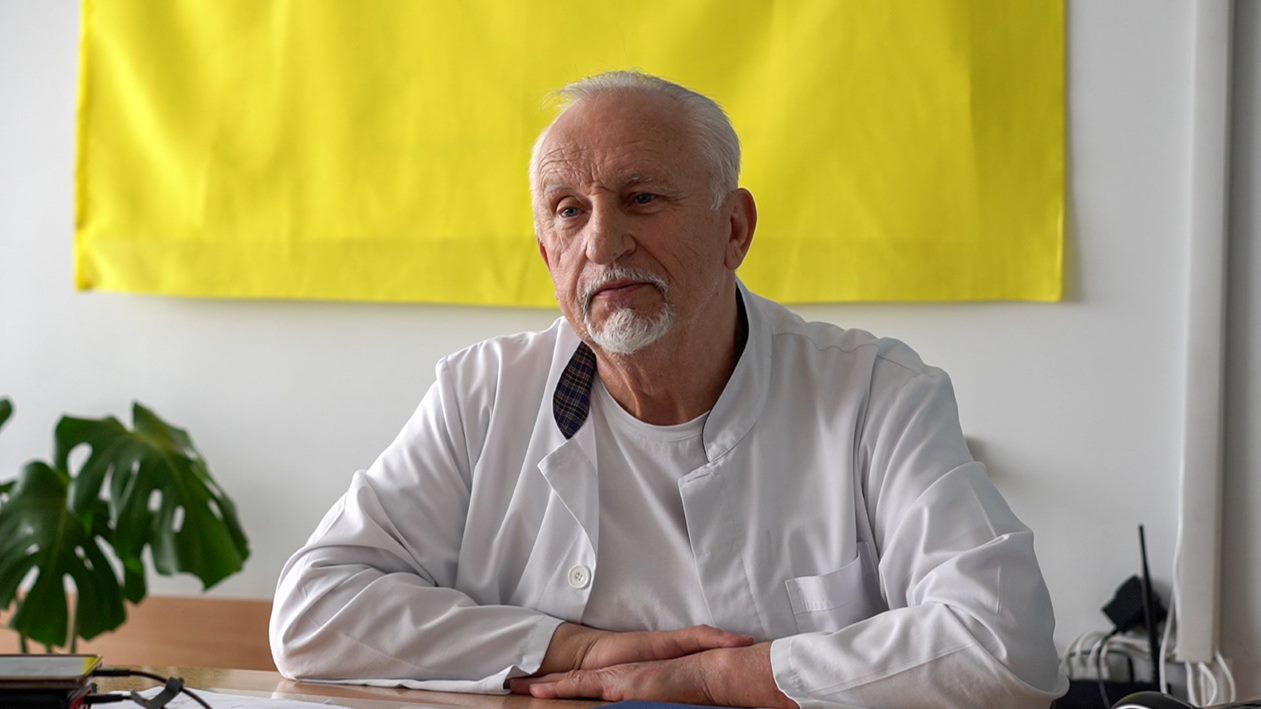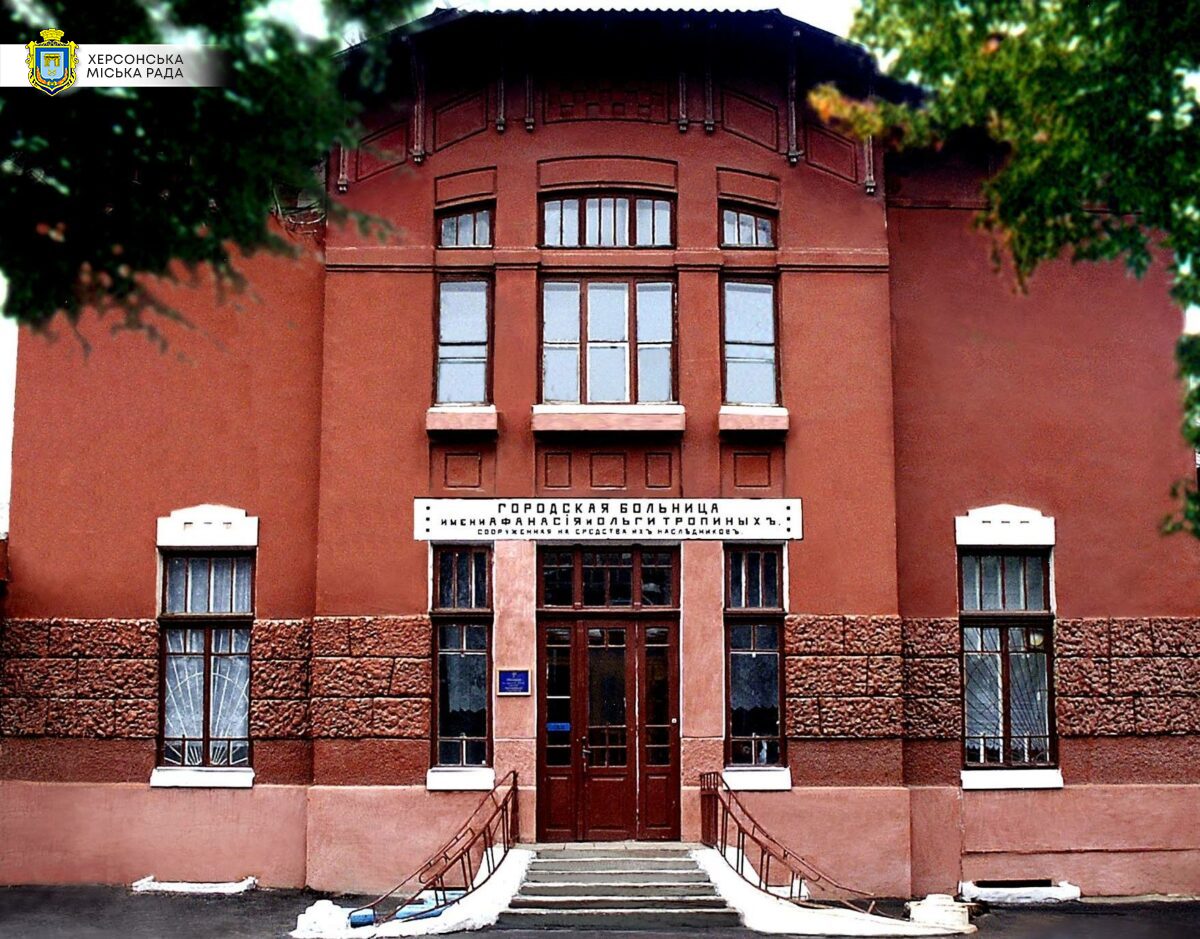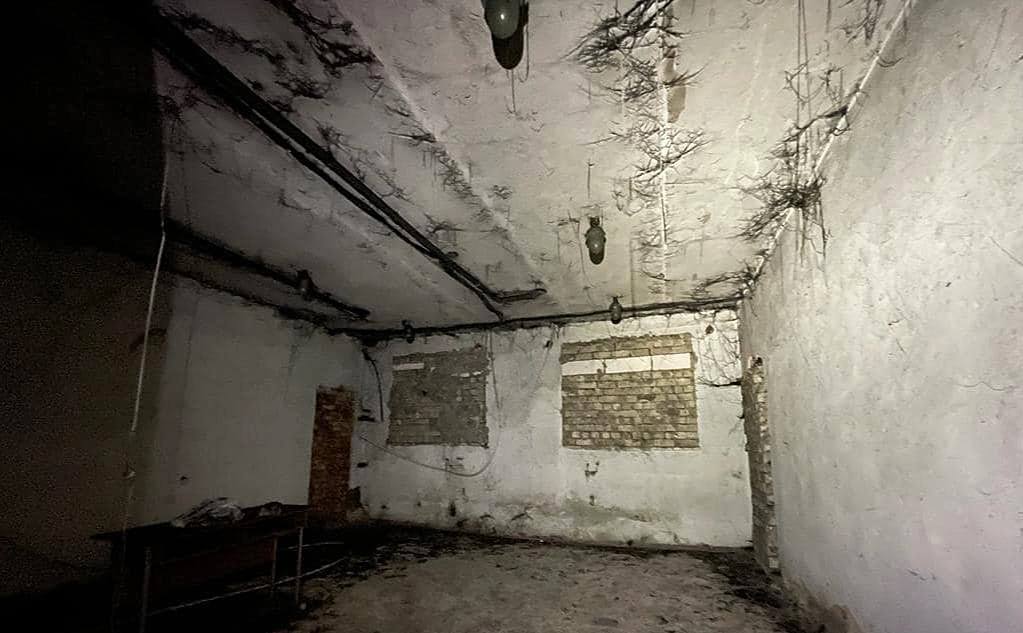Polygraph to attest pro-Ukrainian position: Doctor from Kherson
I remember that at 6:00 in the morning, comrades from the Henichesk district called me and said Russians were already bombing the Chonhar bridge and the city of Henichesk. We knew that something had to be done. We were in despair, conferring with the family about what to do next. Neighbors also began to show nervousness: everyone listened to the radio. I arrived at work as usual. All the employees gathered at work and began to listen to the news. We already knew that Kyiv, Kharkiv, and other cities were being bombed. We realized that we needed to work and wait for any official announcements.
It became known that some law enforcement agencies and the bodies that ensured our safety disappeared from the city, and we were left alone. They [the Russians] entered Kherson around 1 March. And already on 6 or 7 March, they were on the territory of the hospital. They demanded a meeting with me as a leader.
“We need you to vacate some of the premises. The command of the Russian Federation has decided to place a military hospital for the Russians here.”
I told them this was impossible: we cannot evict children or other patients. We lied that we have COVID raging. Later, the Russian FSB officers appeared dressed in civilian uniforms: Russian representatives of the special services, who began to work on the staff, and me to persuade us to cooperate. There were about three such meetings. It was on the eve of their holiday — 9 May. They brought “Komsomolskaya Pravda” so that we could distribute it among doctors and patients. I said: “OK, leave it, we’ll do everything.” In the evening, we destroyed [burned] all these newspapers, and somehow they became aware of this. That is, someone reported the incident. There was another case: We hid our guys from the territorial defense unit. Some died, and some were wounded in our Lilac park.
I take it they were unarmed?
You know, they were partially armed. The wounded were brought to us: four or five men. We sent two of them to specialized institutions. But they were with machine guns.
I mean, they were with machine guns against tanks.
We immediately registered them as civilians, so when the FSB officers approached and demanded documentation regarding territorial defense soldiers, doctors came and looked at the medical records, but it was written they were residents who had suffered from shelling. This, too, became known to the FSB officers, and all charges were brought against me. I was suspended because I was an accomplice of the pro-Ukrainian position and resisted the Russian authorities. But they demanded that I remove the Ukrainian flag from the building.
Was it somewhere on the roof?
On the roof, yes. A Ukrainian flag was hanging in front of the admissions department, and one Russian noticed it. He turned on the cell phone camera and ordered me to take down the flag. I said I would not do this: you can call the soldiers and do something with me, but I will not. He looked at me strangely and said: “Well, you are very much risking your life. Do you have no relatives?” I replied that I have relatives, but I will not do this. He agreed, said he would return at 5 pm (it was in the morning), and wanted to see that this flag was not there. But this flag remained until 7 June, until I was suspended from duty.

Armed FSB officers appeared again with representatives of the collaborating authorities, appointed at that time in the city of Kherson. These were the representatives of Saldo [collaborator with Russia, deputy of the Kherson City Council ] and his henchmen, whom he appointed. They came and told me: “Either you sign a paper that you are cooperating with us, or leave. We will arrest you for your pro-Ukrainian position, burning newspapers and inciting against the Russian authorities.” And then they fired me. I felt sick, and my blood pressure rose. My doctors, who were present then, tried to persuade them: “What are you doing? Now, there will be a stroke or a heart attack. Let’s put him in the hospital.” They agreed and escorted me to our hospital room.
Did they try to detain you at home, not in the hospital?
No, it was in the hospital, in the office. They called a meeting and said they were removing me, arresting me, and taking me to Perekopska — we had a detention center there. But my doctors and deputies, who were with me, came to my defense and said I was sick, and my blood pressure was very high. There was a Russian doctor, as I understand it, not our collaborator, but a Russian doctor. He gave the order to put me in the hospital and then examine me.
Collaborators were appointed who carried out the registration of the enterprise in accordance with Russian laws. Communications in the Ukrainian language were forbidden. We were forced to keep documentation only in Russian. It was all forcibly carried out under the control of the FSB officers, who were here almost daily and supervised the hospital’s activities — financial, clinical, organizational, and managerial. All this was under the control of the FSB. While in the hospital, they spied on me. As I understand it, they had a rotation at some time: some left, others arrived with all their affairs. They got acquainted with everything, and I had already escaped from the hospital when it dawned on me.

I escaped and hid in Kherson, Oleshky, and other cities. I knew that I was wanted because my apartment was broken into. They took things and documents that were there.
The garage was broken into. They also took some things. I became aware that they were looking for me. I was hiding. I hid as much as I could, but on 20 September, they grabbed me on the street. They blindfolded me and invited someone who knew me, so he confirmed that it was me — Remiha, such and such and worked at such and such place. A convoy accompanied me; there were 5 or 6 armed soldiers and three FSB officers, all in camouflage. When they blindfolded me, I realized they were taking me to the pre-trial detention center because I knew my way around Kherson very well. And so it happened. When I was taken to the pre-trial detention center, registration took place. They took away all the things, the phone, and the car because I was moving at that time by car. They took it away. During interrogations, another car was taken from the parking lot, and they didn’t give them back. Well, that’s the kind of thing that happened.
Did they just steal it from you?
Yes. A lot was stolen, and the apartment was robbed.
I was in the cell with our Ukrainian guys. I was recognized there. “What are you doing? You’re a doctor!” — “Well, for my views.” Then, during interrogations, I realized that the pro-Ukrainian position became the main incentive to break me morally. Well, the pro-Ukrainian stand is OK. However, if they tell you that you walked on the hospital’s roof, launched drones, and submitted information to the Armed Forces of Ukraine?
Is that what you were told?
Yes. Also, my son works in the mayor’s office, sponsors the “Right Sector”, and sends funds to the Armed Forces of Ukraine. Also, I participated in the assassination attempt on our collaborators. And so on. You know, they had to prove my guilt in any case so that they would report somewhere to their leadership. There were many different people in the cell. I met them, talked to them, and realized they were strong people. They were patriotic people who defended the independence of Ukraine. ATO [Anti-Terrorist Operation] and masked AFU fighters [The Armed Forces of Ukraine] were there.
A lot of guys died there. We knew about it, we heard about it. Every day, there were screams, screams, torture. We had cameras for women there.
As a doctor, I was invited there to help. Once, the head of this pre-trial detention center said, “I’m so sorry to let you out.” I ask: “What?” — “We need you; you’re a doctor, and we can’t call an ambulance here.” On the one hand, our guys needed my help there. On the other hand, being there, you know, it was torture. The family didn’t know where I was. There was no information, and my colleagues became aware after I had been there for almost a week.
They [Russians] told me: “We have two ways: using the polygraph, we either confirm the data or do not confirm — and you are free. If the data is confirmed on the polygraph, there are two ways: Simferopol — trial or execution, or stay in prison for a long term.

On the 3rd, they came for me and took me away. They brought me to the institution where this polygraphic interrogation is carried out. There were printers there. They had a conversation with me. Then, they conducted this interrogation, and I waited about ten minutes after that. They mocked me, saying: “Well, back to jail, are you ready?” And I said: “Do I have the right to choose?” — “Yes, you did not pass; the accusations are confirmed.” And then he returned to me after a while and said: “No, you’re free.” — “How free?” — “Yes, get out of here, go home. You will come on such a date, and we will give you the documents.” And indeed, on the 4th or 5th (it was October), I came at the appointed time, waited a long time, and they returned my documents and one phone. They took the second phone from me and said that I should not appear on the territory of the hospital.
Then, the evacuation process began, and messages and SMS went that people should evacuate. They [Russians] came to me again about three or four days before Kherson’s liberation, probably in November. They said that on the 8th or 9th, I should be in such a place and take money, documents, and food for a day so that we could evacuate you. It was a forced evacuation. I said: “Let’s agree, I will go to the evacuation myself. If you give me a car, I will drive this car to the other side."
I did not manage to deceive them, and they said: “No, you will only leave with us.” So I disappeared again a day later.
The neighbor said that they came and asked where I had gone. But I was hiding; I knew they were about to leave, and they left on the 9th. On the 10th, it was calm here. And at 11 am, our Armed Forces entered. I talked with people, neighbors, and acquaintances, and we were sure there would be a victory. When I saw from the balcony (on the 11th) that a car drove in from where the Anthem of Ukraine was heard and our Ukrainian flag hung, at first, no one believed. We thought it was some kind of Russian staging. And then, when we went down and saw that the guys were in our uniforms and spoke our language, we had tears in our eyes.
When did you return to the hospital?
The next day, I came to the hospital. The guys met me and hoisted the flag. The team has met me with our Ukrainian flag.
What were the moods after the release?
Yes, it was a holiday!
What happened to you in the hospital?
We met, kissed, hugged, rejoiced. But the work to address the consequences [of the Russian occupation] was intense. Invaders robbed us; they took away some equipment, computers, and all documents. It was necessary to recover and work out logistics. People were leaving: a lot of doctors left, a lot of staff. It was essential to get organized and arrange everything. The joy of victory and our free city united us.
I have children, grandchildren, family. Unfortunately, the parents have already passed away. It was such a treacherous attack that we did not expect it.
Some of my relatives lived in Russia, and after 2014, our views have changed a lot towards each other. I realized that we can’t be like them. My whole family was pro-Ukrainian despite my wife being born in Russia. She is pro-Ukrainian, and our children and grandchildren are pro-Ukrainian. And the team — part of the team in which I worked — too. I saw that people believe in victory so much; they believe in our Ukraine so much that I could not betray the team.
This is not only the top, but the ordinary doctors?
Yes, they are just ordinary doctors, our privates. Most of the people who ended up on the Left Bank, I want to tell you, keep in touch with the hospital. They are waiting for liberation.